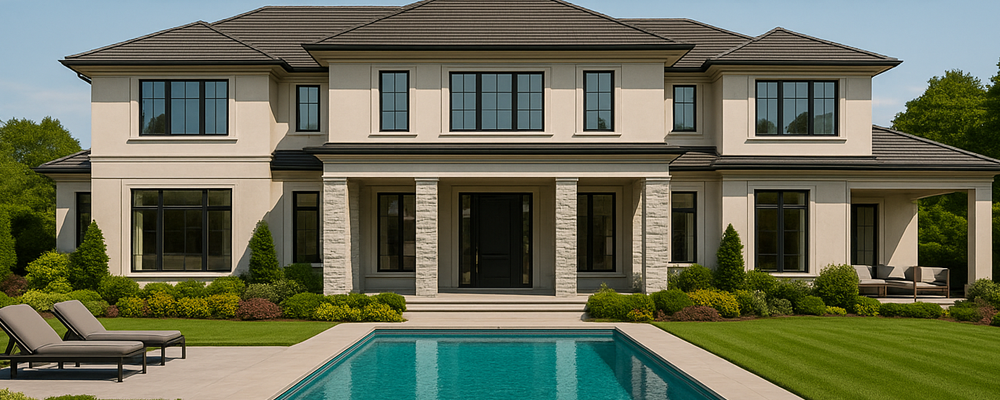In 2025, the Ontario real estate market is undergoing a significant transformation, driven by the widespread adoption of smart home technologies. These advancements are not only redefining modern living but also substantially impacting property values and buyer preferences across the province.
The Rise of Smart Homes in Ontario Smart homes, equipped with interconnected devices and systems, have transitioned from luxury novelties to standard expectations among homebuyers. Features such as automated lighting, advanced security systems, and energy-efficient appliances are now highly sought after. This surge in demand is reshaping the Ontario real estate market, with properties boasting these technologies commanding higher prices and experiencing quicker sales.
Key Smart Home Features Impacting the Market
Energy Efficiency : Homes equipped with smart thermostats and energy management systems allow residents to monitor and reduce energy consumption, leading to cost savings and environmental benefits.Enhanced Security : Advanced security features, including smart locks, surveillance cameras, and motion detectors, provide homeowners with increased safety and peace of mind.Convenience and Connectivity : Integration of devices such as voice-controlled assistants, automated lighting, and smart appliances offers unparalleled convenience, allowing homeowners to manage various aspects of their homes remotely.
Influence on Property Values The incorporation of smart technologies has a tangible impact on property valuations in Ontario . Buyers are willing to invest more in homes that are move-in ready with integrated smart solutions. This trend is evident in various markets across the province, where smart homes are appraised at higher values compared to traditional residences.
Market Trends and Buyer Preferences The Ontario real estate market is witnessing several notable trends influenced by the rise of smart homes:
Increased Demand for Sustainable Living : Buyers are prioritizing homes that offer energy-efficient solutions, aligning with a broader commitment to environmental sustainability.Preference for Enhanced Connectivity : With the proliferation of remote work, reliable and fast internet connectivity has become a crucial factor for buyers, influencing their choice of location and property.Desire for Advanced Security Features : Homebuyers are increasingly seeking properties equipped with state-of-the-art security systems to ensure the safety of their families.
Challenges and Considerations While the integration of smart technologies offers numerous benefits, there are challenges to consider:
Privacy Concerns : The increased connectivity of devices raises issues related to data privacy and security. Homeowners must ensure that their systems are secure to prevent unauthorized access.Technological Obsolescence : Rapid advancements in technology may lead to certain systems becoming outdated quickly, necessitating ongoing investments in upgrades.Cost Barriers : The initial investment for installing comprehensive smart home systems can be substantial, potentially limiting accessibility for some buyers.
The Future Outlook As technology continues to evolve, the prevalence of smart homes in Ontario is expected to increase. Developers and real estate professionals are recognizing the value of incorporating smart features into properties to meet buyer expectations and enhance marketability. This trend signifies a broader shift towards more connected, efficient, and secure living environments, solidifying the role of smart homes in shaping the future of Ontario’s real estate market .
In conclusion, the integration of smart home technologies is playing a pivotal role in transforming the Ontario real estate market in 2025. As these innovations become increasingly mainstream, they are set to redefine standards of living and influence market dynamics across the province.




